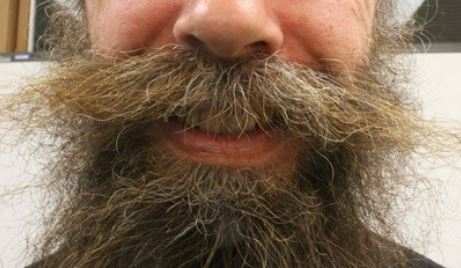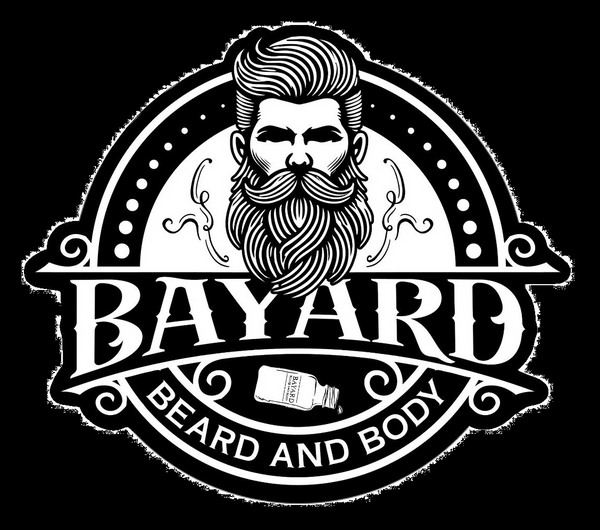
Why Does My Beard Feel So Dry?
Share
Many men encounter a common issue: a dry beard.
This problem can lead to discomfort, itchiness, and an unkempt appearance. Understanding the causes and remedies for a dry beard is essential for maintaining a healthy, luscious beard. In this comprehensive guide, we will explore the reasons behind beard dryness and provide practical solutions to keep your beard soft, hydrated, and well-groomed.
Understanding Beard Dryness
Beard dryness is primarily due to insufficient moisture in the beard hair and the underlying skin. Unlike the hair on your scalp, which benefits from natural oils (sebum) produced by sebaceous glands, beard hair often receives less oil, leading to dryness. Various factors contribute to this condition, ranging from environmental influences to grooming habits.
Causes of Beard Dryness
Weather Conditions:
- Cold Weather: Low humidity levels during winter can strip moisture from your skin and beard, leaving them dry and brittle.
- Hot Weather: Excessive heat and sun exposure can cause dehydration, impacting the beard’s moisture levels.
Improper Grooming:
- Over-Washing: Frequent washing with harsh soaps or shampoos can remove natural oils, leading to dryness.
- Lack of Conditioning: Skipping conditioner or beard oil can result in insufficient hydration.
Diet and Hydration:
- Poor Nutrition: A diet lacking essential vitamins and minerals, such as vitamins A, E, and B, and omega-3 fatty acids, can affect hair health.
- Dehydration: Not drinking enough water impacts overall skin and hair hydration.
Genetics:
- Your genetic makeup plays a significant role in determining the oil production of your skin. Some men naturally produce less oil, leading to drier beards.
Skin Conditions:
- Conditions such as eczema, psoriasis, and seborrheic dermatitis can cause dryness and flakiness in the beard area.
Stress and Lifestyle:
- Stress and lack of sleep can negatively impact skin health, reducing the natural oil production necessary for a hydrated beard.
Symptoms of a Dry Beard
Recognizing the signs of a dry beard is the first step toward effective treatment. Common symptoms include:
- Itchiness: A persistent itch is often the first indication of dryness.
- Flakiness: White flakes, similar to dandruff, can appear on the beard and the underlying skin.
- Brittleness: Dry beard hair tends to break easily and feels rough to the touch.
- Dull Appearance: A dry beard lacks the natural sheen and appears lifeless.
Solutions to Combat Beard Dryness
1. Proper Washing Routine:
- Gentle Cleansing: Use a mild beard wash or a natural beard soap designed for beards. Avoid using regular shampoos that can strip away natural oils.
- Frequency: Limit washing your beard to 2-3 times a week to maintain natural oil balance.
Conditioning and Moisturizing:
- Beard Oil: Apply beard oil daily to moisturize and nourish the beard and skin. Look for oils containing ingredients like jojoba, argan, and sweet almond oil.
- Beard Balm: Use beard balm to add extra moisture and provide a protective against environmental factors.
- Beard Butter: Incorporate a beard butter into your routine to hydrate and soften beard hair. Highly recommend doing this before you go to bed.
Hydration:
- Drink Water: Ensure you are drinking at least 8 glasses of water a day to keep your body and skin hydrated.
- Humidifiers: Use a humidifier, especially during winter, to maintain indoor humidity levels and prevent skin and beard dryness.
Balanced Diet:
- Nutrient-Rich Foods: Include foods high in vitamins A, E, and B, as well as omega-3 fatty acids. Foods like salmon, nuts, seeds, and leafy greens can promote healthier beard growth.
- Supplements: Consider taking supplements if you are unable to get sufficient nutrients from your diet.
Avoiding Stress:
- Relaxation Techniques: Practice stress-relief techniques such as meditation, yoga, or regular exercise to maintain overall health and well-being.
- Sleep: Ensure you get 7-9 hours of sleep each night to support skin and hair health.
Environmental Protection:
- Sun Protection: Use a beard oil, butter or balm, both have a level of SPF protection for your beard to keep it from sun damage.
- Cold Weather Care: In winter, after applying beard care products, cover your beard with a scarf to protect it from cold, dry air.
Regular Trimming:
- Split Ends: Regularly trim your beard to remove split ends and maintain a healthy appearance.
- Professional Grooming: Visit a barber for professional grooming and advice tailored to your beard type.
DIY Treatments for Beard Dryness
In addition to commercial products, several natural remedies can help alleviate beard dryness, we recommend the following:
- Argan Oil: Known for its moisturizing properties, Argan oil can be applied to the beard to hydrate and soften hair.
- Jojoba Oil: Jojoba oil is structurally similar to the natural oils produced by the skin, making it an excellent moisturizer for all skin types. Its lightweight texture allows it to penetrate deeply into the skin, delivering hydration.
- Meadowfoam Seed Oil: Meadowfoam Seed Oil is a waxy oil, similar to Jojoba. It's rich texture makes it the perfect choice for beard oils, butters and balms, where it offers substantively, along with barrier formation, to lock in skin's natural moisture to help prevent dryness and soften the skin.
- Castor Oil: One of the key benefits of castor oil is its ability to deeply moisturize and condition both the hair and skin. A well-moisturized beard is less prone to breakage and split ends, promoting overall healthier growth.
Common Myths About Beard Dryness
Myth: Only long beards get dry.
- Fact: Beard dryness can affect beards of all lengths. The key is proper care and hydration regardless of length.
Myth: Washing your beard daily is necessary.
- Fact: Over-washing can strip natural oils, leading to dryness. It’s better to wash your beard 2-3 times a week with a gentle cleanser.
Myth: All oils are the same.
- Fact: Different oils have different properties. Choosing the right beard oil with nourishing ingredients is crucial for effective hydration.
Long-Term Care for a Healthy Beard
Maintaining a healthy beard requires consistent care and attention to your grooming habits. Here are some tips for long-term beard health:
- Routine Maintenance: Develop a daily grooming routine that includes cleansing, conditioning, and moisturizing.
- Patience and Persistence: Beard care is not a one-time effort. Be patient and persistent with your routine to see the best results.
- Adapt to Changes: As your beard grows, your grooming needs may change. Be adaptable and adjust your routine accordingly.
- Regular Check-Ups: If you experience persistent dryness despite following proper care routines, consult a dermatologist to rule out underlying skin conditions.
After all is said and done.
A dry beard can be a frustrating experience, but understanding the causes and implementing effective solutions can transform your beard into a soft, healthy, and well-nourished asset. By adopting proper grooming habits, maintaining a balanced diet, staying hydrated, and protecting your beard from environmental factors, you can ensure your beard remains in optimal condition. Remember, consistency is key, and with the right care, you can enjoy the journey of growing and maintaining a magnificent beard.













